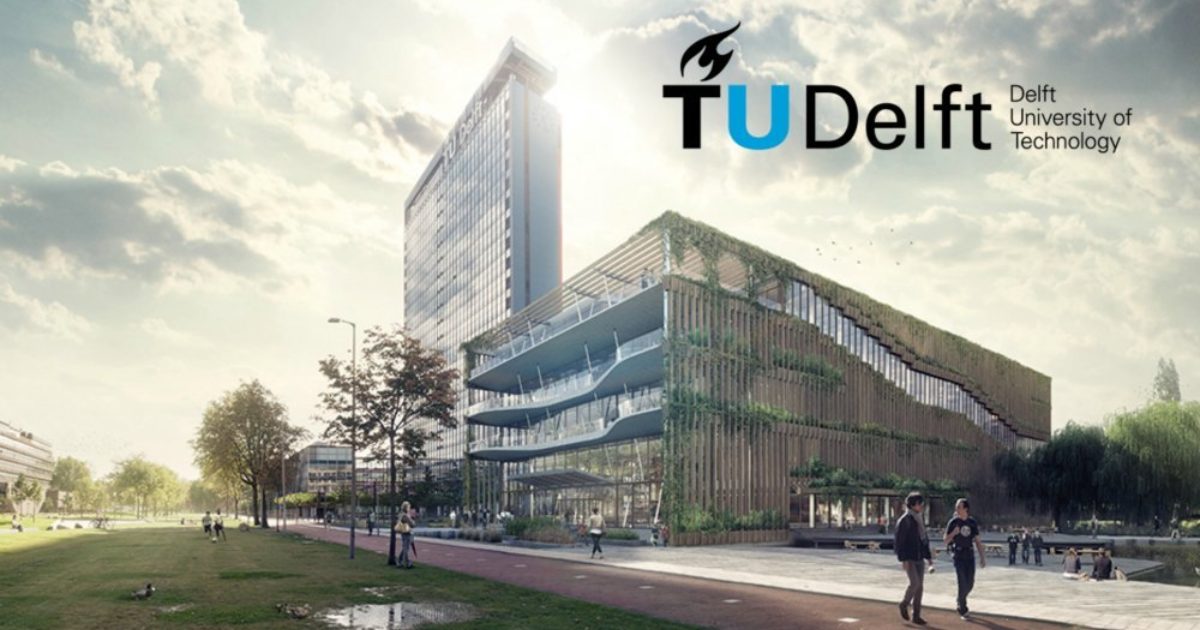TU Delft Brings Knowledge And Expertise Closer To Government
Many still know it as the old V&D building, later the Canadian department store Hudson’s Bay moved in briefly, but the iconic building on the Grote Marktstraat in The Hague is getting an academic destination. Together with Leiden University, the Open University and Universities of the Netherlands (v/h VSNU), TU Delft will be co-occupying the Spui building in 2025. The ideal place to bring engineering knowledge closer to the heart of policy and administration, according to Behnam Taebi (Faculty of Technology, Policy and Management TU Delft) and Jaco van Noppen (Campus Real Estate & Facility Management TU Delft).
The decision has been made and the lease is signed: TU Delft will soon occupy part of the building on the Spui, which after a major renovation will continue as University Building Spui. The location is good for TU Delft’s positioning and visibility in the city of Peace, Law and Security, which is exactly what Behnam Taebi has been working towards for several years. “We see it as part of our social responsibility to bring our knowledge and expertise closer to the heart of policy and government. Physical proximity helps,” says the professor of energy and climate ethics and TU Delft’s figurehead in The Hague.
You can hardly get any closer. The new location includes not only the former department store on Grote Marktstraat, but will have an entrance on Spui: diagonally across from where the entrance to the Lower House is to be located in 2026. “Together with Leiden University and the other partners, we want to build a university building there, which should become the ‘place to be’, a place where government officials and policy makers can just walk in,” Taebi says. Martijn Ridderbos, vice president of Leiden University’s Executive Board is equally enthusiastic: “There is an enormous energy among all the partners involved. The Spui building works as a magnet for all kinds of fruitful collaborations. We are eager to see how we can learn from each other and strengthen each other.”
Closer to demand
In this regard, The Hague is not only the seat of national government, but as Europe’s second UN city, it is also a launch pad for important issues of international policy and governance. Hilbert Bredemeijer, alderman for education of The Hague: “As a city we are of course delighted with the arrival of so many engineers in training right in the center. A wonderful place opposite the city hall and the Lower House, where these students will once again provide extra élan. The cooperation between the universities is obviously something that, as alderman for education, I can only greatly encourage.”
And being closer to that demand is precisely one of the principles at The Hague. “We can design our work better if we know the need from policy. The solutions to the great challenges of the coming decades depend largely on technological innovation. Let’s think about that together with policy makers in the spirit of co-creation, even before we propose solutions,” Taebi said. “Our broadly trained engineers can help think about socially accepted, broader-based solutions.” Climate and energy, digitalization, safety: these are pre-eminent topics for which proximity to policy and government is important, topics on which TU Delft is also already working in The Hague.
No closed offices
“This location is unique,” says Jaco van Noppen. As director at CREFM, his responsibilities include the TU Delft Campus Strategy, the housing and real estate plan for the coming years. “Located in the center of The Hague, near the Binnenhof, within walking distance of the railway station and well served by public transport.” A design for the interior is currently being worked on: “Its open structure and layout will make meetings between students and teachers easily accessible and promote cooperation with partners.
No closed offices; you choose a space based on the activity you have scheduled that day.” Meetings are further promoted by the shared facilities, such as the teaching rooms, restaurant and bicycle parking. However, TU Delft can create its own identity, which is important for visibility. “Next to the entrance will be the logos of all the residents. Because Leiden University is the initiator and main tenant, but we are all equal partners, that is what we aim to radiate.”

